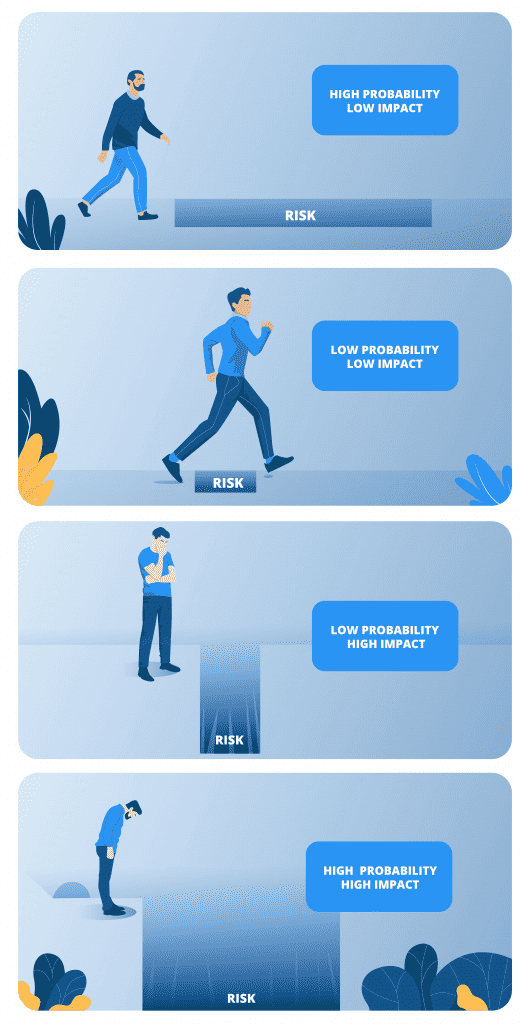
In the ever-evolving landscape of global commerce, the interplay between tradition and transformation is particularly evident in how companies approach risk management. This article delves into the dichotomy between traditional risk mitigation strategies and the innovative approach mandated by Germany’s Supply Chain Due Diligence Act (SCDDA). With a primary focus on due diligence in supply chains concerning human rights and the environment, this article will explore the contrasting methods companies employ to navigate risks. We will analyse how these approaches align with the SCDDA’s diligence requirements.
Understanding the SCDDA
Before delving into the intricacies of risk management, it’s imperative to comprehend the fundamental aspects of the SCDDA. This groundbreaking legislation, although rooted in Germany, extends its reach beyond German companies operating solely within the country. Instead, it follows a phased approach to gradually encompass a wider range of enterprises, initiating transformative changes in the global landscape of supply chain due diligence. The Act initiates its transformative journey in two distinct phases.
Phase 1: Commencing in January 2023
The SCDDA comes into effect for enterprises based in Germany with more than 3,000 employees. This scope also encompasses German-registered branches of foreign companies with over 3,000 employees. Notably, the employee count includes any personnel posted abroad by domestic companies. Furthermore, the Act categorises employees as “any worker with an employment contract for longer than six months.” This initial phase brings approximately 600 companies within the SCDDA’s purview, emphasising a proactive approach to identifying and mitigating risks.
Phase 2: Expanding in January 2024
In the second phase, the SCDDA widens its scope to enterprises based in Germany employing over 1,000 employees and also includes German-registered branches of foreign companies with more than 1,000 employees. With this expansion, the criteria apply to a significantly broader pool of approximately 2,900 companies, reinforcing the Act’s commitment to advancing responsible supply chain practices.
This dual-phase approach underscores the global reach of the SCDDA, making it applicable to a wide array of organisations, irrespective of their origin or location. The Act’s provisions not only challenge conventional methods of risk management but also redefine the dynamics of corporate responsibility in the realm of supply chains. As the SCDDA continues to evolve, its influence extends beyond German borders, encouraging companies to embrace a more proactive and comprehensive approach to risk mitigation, thereby enhancing human rights and environmental protections in supply chains on a global scale.

1. Risk Transfer
Traditional Way:
Traditionally, companies have adopted risk management strategies that primarily involve transferring specific types of risks, such as credit risk, financial risk, and operational risk, to third parties through contracts or insurance. This approach allows businesses to distance themselves from potential liabilities, delegating the responsibility of risk management to external entities. While this method provides a certain level of security, it also results in a detachment from the complexities of supply chain management. The implications of this risk transfer can lead to a lack of control over risk mitigation strategies and the potential for miscommunication or misunderstanding between the company and the third party. Furthermore, this traditional approach may not adequately address all types of risks, especially those that are unique to a particular company or industry.
SCDDA Way:
Under the SCDDA, traditional risk transfer is rendered obsolete. Companies are now required to actively monitor and address specific types of violations, such as those related to human rights, environmental obligations, and labour standards, within their own operations and those of their direct and indirect suppliers globally. This shift in focus from outsourcing responsibility to a hands-on approach necessitates immediate corrective action in response to identified violations. The SCDDA imposes specific due diligence obligations, including the establishment of an appropriate and effective risk management system, the conduct of annual risk analysis, the issuance of a policy statement, and the implementation of preventive and remedial measures. This paradigm shift fosters a more profound sense of accountability, demanding that companies become intimately acquainted with the intricacies of their supply chains.
2. Risk Acceptance
Traditional Way:
Historically, companies have employed a risk acceptance strategy where they acknowledge certain types of risks, such as those related to regulatory compliance, market competition, or technological changes, but choose not to mitigate them if full elimination is deemed impractical. This approach allows businesses to recognise potential hazards while opting for inaction if the costs or resources required for mitigation are deemed excessive. The implications of this risk acceptance can lead to a lack of control over potential negative outcomes and the potential for miscommunication or misunderstanding between the company and stakeholders. Furthermore, this traditional approach may not adequately address all types of risks. While this method can simplify decision-making, it often leaves companies vulnerable to unforeseen consequences.
SCDDA Way:
Contrary to traditional risk acceptance, the SCDDA mandates companies to take reasonable steps to prevent or mitigate specific types of risks, such as human rights violations, environmental degradation, and labour standards, even when complete elimination is challenging. This includes conducting a comprehensive risk analysis that identifies these risks not only in the company’s operations but also in those of their direct suppliers. This proactive approach ensures that companies not only acknowledge risks but actively work towards minimising their impact, fostering a culture of continuous improvement and adaptability.
3. Risk Avoidance
Traditional Way:
Historically, companies have adopted a risk avoidance strategy, where they eliminate activities that pose specific types of risks. If a particular business relationship posed a risk of human rights violations or environmental damage, companies would sever ties to mitigate the associated risks. While this method can simplify decision-making, it often leads to disruptions in the supply chain and strained relationships.
SCDDA Way:
The SCDDA goes beyond mere risk avoidance by implementing remedial measures to address specific types of risks, such as human rights violations, environmental degradation, and labour standards. This includes refusing business relationships with high-risk suppliers and establishing a robust risk management system, complete with a designated Human Rights Officer overseeing monitoring, risk assessment, and investigative efforts. The SCDDA imposes specific due diligence obligation, such as the adoption of a policy statement on human rights strategy. By taking this approach, companies not only avoid risks but actively contribute to the creation of a more sustainable and responsible supply chain ecosystem.
4. Risk Reduction
Traditional Way:
In the traditional paradigm, companies implemented measures to minimise the impact or likelihood of specific types of risks. These measures included various strategies, such as insurance coverage, safety protocols, and contingency plans. Companies conducted thorough risk assessments, maintained open communication channels, continuously monitored their operations, developed contingency plans, and diversified resources. While these measures provided a degree of assurance, they often operated as reactive solutions rather than proactive prevention.
SCDDA Way:
The SCDDA shifts the focus to preventive measures, obligating companies to implement reasonable measures to prevent or mitigate specific types of risks. This includes comprehensive risk assessments, supplier monitoring, and corrective actions. The Act also encompasses the creation of a code of conduct, training courses, and sustainable contract drafting. Companies are required to designate a responsible individual or individuals within the firm to conduct risk analysis, and manage the risk plan regularly, and implement due diligence obligations in relation to their operations and across their entire value chain. By taking this proactive approach, companies not only reduce the likelihood of risks but also transform risk management into a dynamic and continuous process that aligns with evolving global standards and expectations.
Balancing Tradition and Transformation for a Sustainable Future
In this dynamic dance between the age-old traditions of risk management and the transformative principles mandated by the SCDDA, the path towards a more ethical and sustainable future becomes increasingly evident. The SCDDA undoubtedly serves as a pivotal force, guiding companies towards a heightened sense of responsibility and direct engagement in mitigating risks within their intricate supply chains. This transition signifies a profound shift in corporate mindset, where ethical and sustainable practices emerge as the keystones of success.
And as the global business landscape evolves, the delicate balance between tradition and transformation is no longer merely a legal necessity; it is a moral imperative. Businesses that embrace this paradigm shift stand to reap a multitude of benefits. First and foremost, they gain the invaluable asset of an enhanced reputation. By proactively addressing human rights and environmental concerns within their supply chains, companies build trust with consumers, investors, and stakeholders, bolstering their standing in the market.
Moreover, this shift towards ethical and sustainable practices imbues organisations with increased resilience. They become better equipped to handle disruptions, adapt to changing regulations, and navigate the complex terrain of global commerce. Furthermore, the long-term sustainability of these practices ensures that businesses not only comply with the law but also flourish in a world that increasingly values responsible, forward-thinking, and conscientious corporate citizenship. In embracing this change, companies lay the groundwork for a future that is not only legally compliant but also ethically robust, resilient, and sustainable.
